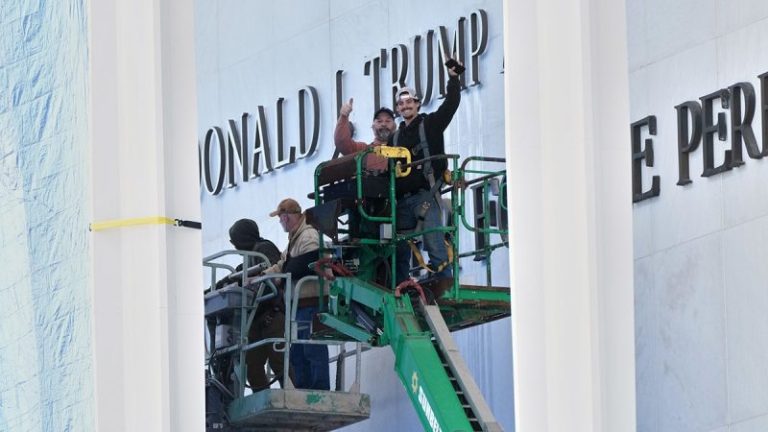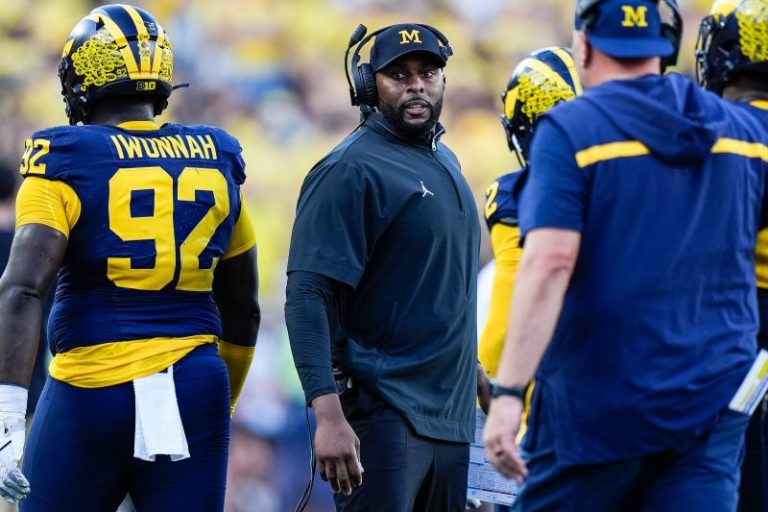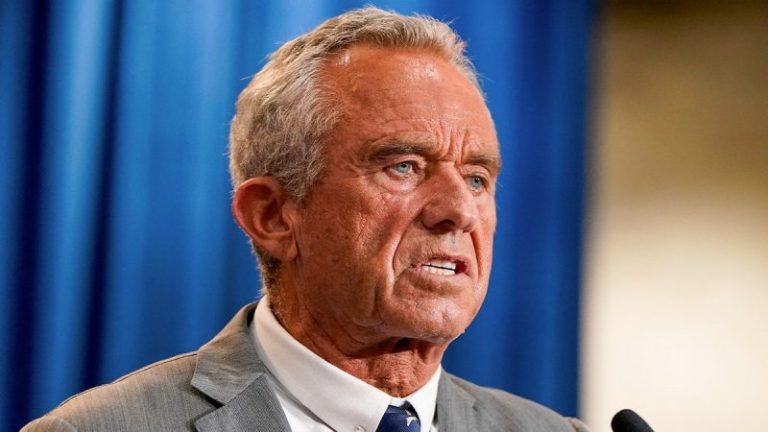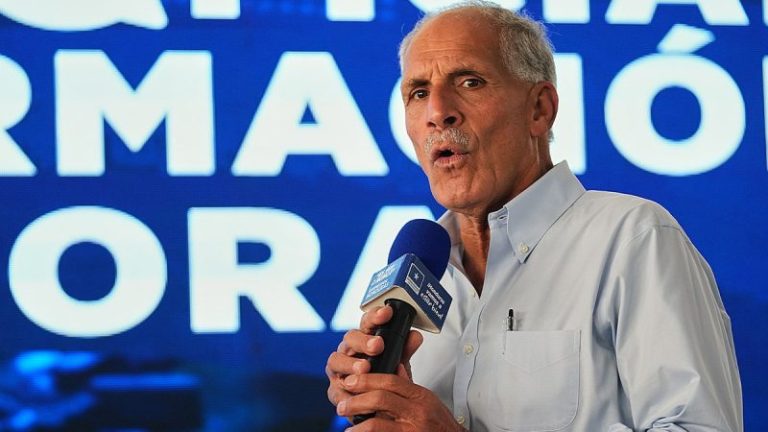It was February 2025 when the cracks in the facade of Sherrone Moore’s reign began to appear, or at least were put on display for his entire coaching staff to see.
In a meeting called by the then-Michigan football coach on a cold afternoon in Ann Arbor, Moore delivered a vitriolic outburst featuring tears and tossed papers in a virtual harbinger of his downfall at Michigan a scant 10 months later.
By December 2025, Moore would be no more within the walls of Schembechler Hall, fired for an inappropriate relationship with a staffer, and jailed the same day on a trio of charges related to allegedly threatening that same staffer.
But in February, Moore’s ire was directed at Wink Martindale.
Martindale, the team’s defensive coordinator, had two decades of NFL experience, including nearly 10 years working for the Baltimore Ravens – a team run by former U-M coach Jim Harbaugh’s brother John, and a pipeline for U-M coaches over the years.
Martindale, in his first year at U-M, helped Moore save the 2024 season with defensive masterclasses against Ohio State and then Alabama, seemingly setting the program up for success in Year 2.
Instead, the relationship between the two began to devolve even before spring ball.
“Sherrone wasn’t even speaking to his coaches over the last recent couple weeks, month,” a high-ranking university official who spoke on condition of anonymity to protect their relationships, told the Free Press shortly after Moore was fired.
The disconnect had one coach targeted, specifically, said the official: “Wink.”
The seed was seemingly planted when Moore overheard coaches discussing a potential recruit and quickly called a meeting.
According to a person with knowledge of the meeting, Moore began screaming at staffers that everybody needed to be on the same page, and that he didn’t want “people talking behind [his] back” about recruits.
Martindale piped up, saying, “Look, we’re trying to help you … get the right recruits.”
Moore responded: “You don’t know what the [expletive] you’re doing.”
Martindale, then 61, retorted, “Yeah … I’m just the old guy,” drawing an eruption from the 39-year-old Moore, who had been in charge of the U-M program for roughly 13 months following six years as an assistant coach in Ann Arbor.
“You don’t know how hard it is to be the head football coach and the pressure,” Moore allegedly said through tears, as he slammed down his papers and withdrew to his office.
It could almost be seen as a microcosm of Moore’s tenure with the Wolverines – fiery talk, followed by an unexpected collapse.
These days, Moore is unemployed, awaiting a probable cause hearing in January and wearing a GPS tether. It all stemmed from his firing Dec. 10 after the surfacing of ‘credible evidence’ of an illicit relationship with a staffer and a subsequent arrest for allegedly breaking into her apartment and threatening to kill himself, resulting in charges for third-degree felony home invasion, misdemeanor stalking and misdemeanor breaking and entering.
(The Free Press generally does not identify people described as domestic crime victims without their consent.)
Moore’s arrest was a loud announcement of his own problems at Michigan, but things were quietly falling apart within the program long before then.
More than half a dozen people with knowledge of the situation – including former staffers, high-ranking university officials, members of the athletic department, women Moore messaged online and parents of players – detailed to the Free Press how college football’s winningest program, led by a young coach seemingly on his way to stardom, unraveled in the blink of an eye.
‘A culture shift,” one called it.
‘Not what it seemed on the outside,’ another said.
‘A long time’ without fun
The breakdown of kinship among some Michigan football staff is far from secret these days.
Interim coach Biff Poggi admitted as much in his final media availability before the Wolverines depart for their Citrus Bowl date with Texas at the end of the month. The interim coach, who had two stints as associate head coach at U-M – one under Harbaugh and one under Moore – was asked about the relationships among the Wolverines’ staff on Monday, Dec. 22.
His telling response: ‘As far as being close … I wouldn’t say that, exactly.’
For the team – players and coaches alike – it had “been a long time” since they truly had fun, Poggi added. The loss of spark seemed to trickle down from Moore, even before his slide from the power seat in Michigan football.
Moore climbed the coaching ranks both in level – from Louisville to Central Michigan to U-M – and in responsibility – from tight ends, to offensive line, offensive coordinator and, finally, coach of Michigan football.
On paper, he checked all the boxes. In reality, he proved to be in over his head, nearly from the start.
Exacerbating that was his seemingly near-constant distraction by women both in and out of the program.
In less than two years, Moore took a program coming off its first national championship in a quarter-century and turned it into a punchline for comedians from the Empire State to the Mitten State – both ‘Saturday Night Live’ and stand-up comic Jordan Klepper, in Ann Arbor for a show, had jokes about Moore and the Wolverines teed up days after his dismissal.
[ MUST LISTEN: Make ‘Hail Yes!’ your go-to Wolverines podcast, available anywhere you listen to podcasts (Apple, Spotify) ]
‘Jobs they were gifted’
Barely a year before then, Michigan football had all but forgotten how to lose.
That’s why it felt so strange inside team headquarters Sept. 8, 2024, as the Wolverines reconvened following a 31-12 home loss to Texas on Sept. 7 – Michigan’s first loss in 616 days.
In 2022, Michigan’s only loss had come in the College Football Playoff semifinal; nobody had to report to Schembechler Hall to try and rebound afterwards – the season was simply done. In 2023, Michigan went one game further, and completed an undefeated CFP championship season.
Following the title, coach Jim Harbaugh left for the NFL’s Los Angeles Chargers and carried away a wealth of coaching talent: Jesse Minter (defensive coordinator), Mike Elston (defensive line), Steve Clinkscale (defensive backs) and Ben Herbert (strength and conditioning). Jay Harbaugh, Jim’s son and the special teams coordinator, also left for the NFL to join former U-M defensive coordinator Mike Macdonald with the Seattle Seahawks.
It left a void in Ann Arbor and, because of the timing of Harbaugh’s departure in late January, the coaching options were few.
But one coach – Moore – was propped up by his predecessor, who’d once named the Oklahoma alumnus an ‘honorary Michigan Man,’ and pushed forward by players to take over the program. Athletic director Warde Manuel had witnessed his 2023 run as interim coach, when Moore closed the regular season in place of a suspended Harbaugh with a run-heavy, emotional win over Penn State on the road, the program’s 1,000th win at Maryland and a thriller over Ohio State to clinch a third straight Big Ten title game berth.
Manuel briefly looked into other candidates, but never interviewed anyone else. A 2½-hour conversation with Moore was the only formal interview before he was hired.
When Moore took over in late January 2024, the Wolverines were already behind. While Michigan celebrated its first title since 1997, other teams had already filled out their staffs. Michigan tried to hire internally for as many roles as possible, hoping to keep a semblance of Harbaugh’s structure in place.
Kirk Campbell was promoted from quarterbacks coach to offensive coordinator. Grant Newsome went from tight ends coach to offensive line. Steve Casula, formerly an analyst at U-M before leaving for UMass, was brought back to coach tight ends. J.B. Brown was promoted from analyst to special teams coordinator.
Moore, of course, went from coordinating the offensive attack (and the offensive line) to running the entire show.
How did the calendar change the approach? A person with intimate knowledge of the decision said that, had it happened on a normal timeline, the coach search would’ve been more extensive.
“It was a lot of guys who might’ve not been ready for the jobs they were really gifted,” another person who previously worked in the building, said on condition of anonymity for employment reasons. “Kirk Campbell as QB coach and last year as OC were like two completely different people. … Newsome will be a good coach some day, one of the brightest individuals I’ve been around, but was he ready to be O-line coach at Michigan?
“It created a culture of just less structure and less confidence. … Players felt that.”
According to this person, who was inside the program under Moore and a self-proclaimed ‘huge Michigan fan,’ there’s an “arrogance that goes along with Michigan” – an attitude that was at “an all-time high” for many of the coaches who’d been promoted.
It wasn’t just an arrogance, but a shift in the power dynamic, another former member of the program said.
Moore knew the players in a different way than Harbaugh, having served with multiple groups as a position coach. As one of the former staffers said, it was hard to shake that vision of him. Harbaugh, 61 at the time of his CFP win, was a father figure, while Moore was more like a brother or friend.
Without Harbaugh overseeing the entire operation, a culture that had been built in detail and discipline lost its edge. Instead, it became more lax and lacked the conviction needed to win big.
Nobody expected Moore to have the coaching pedigree of Harbaugh, who starred as QB at Michigan under Bo Schembechler in the 1980s, played in the NFL for more than a decade and coached the University of San Diego and Stanford to extended success before leading the San Francisco 49ers to three NFL playoff berths and a Super Bowl appearance.
But perhaps the gap was underestimated.
U-M’s losses piled up in Year 1 under Moore. U-M lost four of five games from October through early November – one more than the Wolverines had lost in the three previous seasons combined – before salvaging the season with three consecutive victories, including the Martindale-driven stunner over Ohio State in Columbus that appeared to have the program growing toward the future. Instead, things inside the building got worse.
‘It was really toxic’
By the end of 2025, many of Moore’s relationships inside Schembechler Hall had fractured, including arguably his most important, with his defensive coordinator
“Yeah, they did not like each other,” a person who witnessed their interactions told the Free Press.
The Free Press reached out to Martindale via text message to inquire about Moore’s tantrum and their working relationship. Martindale responded he’d “been advised by my agent & lawyer not to comment on anything involving Michigan football. I respect your profession and appreciate you reaching out.”
It wasn’t just Moore who had outbursts, though.
Tight ends coach Steve Casula – now the interim offensive coordinator following the departure of Chip Lindsey on Sunday after just one season for the same job with Missouri – came up in multiple independent conversations with people with inside knowledge of the Michigan program.
Moore can’t necessarily be held accountable for the actions of his assistants, but they do provide an entry into the program’s culture.
One former staffer said Casula “bullied the hell” out of some of the lower-level staffers on the team, telling them to “shut the [expletive] up … They’re nothing. … They should be fired.” Trying to make a suggestion to Casula, the staffer continued, was like stepping on glass, and his “verbal abuse” was a prime example of the toxicity in the building.
It was yet another example of the lack of balance between aggression and respect coaches and players are supposed to have. Football locker rooms are notoriously aggressive, but this was said to be more than that: No one set the tone at the top for how to conduct oneself in a truly professional manner.
Another person from inside the program who also brought up Casula said he was among the coaches making staff members do busy work – “do [expletive] just to do [expletive].”
This former staffer said Casula, 38, garnered respect for his climb through the coaching ranks the hard way – from high schools while he was still a college student to Western Michigan to Colgate to Division II Davenport and Ferris State, to an analyst at U-M, a coordinator at UMass and then, finally, back to Ann Arbor – but it manifested in a ‘narcissistic’ way.
“It was like ‘I have power now and because I had to take the hard way, I’m going to make those guys do it too,’” one ex-staffer told the Free Press.
The Free Press reached out to Casula via text message and he also declined to comment: “Given ongoing investigations, I am unable to speak with you about anything involving our football program and/or athletic department,” he replied.
‘If you didn’t know, you’re an idiot’
By the USC game on Oct. 11, the 2025 season had reached a point where even parents of players were starting to sense a disconnect from the top of the program.
One father of a current player, who spoke with the Free Press on condition of anonymity to protect his son, cited group chats with other parents questioning the lack of detail, the sloppy nature of games and a feeling that hadn’t been around previously.
“Parents said similar things … the challenges in terms of ‘What are we doing?’ It was almost like there wasn’t a focus,” the parent said. “If there were distractions, that would make sense [why it feels as though] your eye’s not on the goal. … You’re focused on other things instead of moving toward people to a playoff spot, you weren’t focused on that.’
Only Moore knows just how much outside circumstances were taking away his focus from football, but the evidence of distractions are now apparent.
Even before Moore’s firing, he communicated regularly with women outside of his relationship with his wife (with whom he has three children over a 10-year marriage). Not only with his staffer, but on social media − OnlyFans model Mia Sorety confirmed her experience to the Free Press.
He was “friendly,” she said, and “trying to get to see me and know me” when he was on recruiting trips in Houston.
Houston, of course, is also where Michigan won the CFP title game in January 2024. Nearly two years later, there were rumors swirling online that Moore offered Sorety tickets to the game, something she called ‘far from the truth.”
Sorety did confirm Moore sent her messages shortly after he was released from jail, but maintained they never met in person.
Another woman messaged the Free Press with a screenshot of a direct message from Moore via Instagram in fall 2019. She was 23 at the time, she told the Free Press.
‘I remember thinking it was odd to have him respond [with a message] to a simple follow on IG,’ she said.
However, Moore’s biggest problem was his years-long affair with the staff member, which ultimately got him fired.
As the 2025 season went on, and rumors began to pick up about his alleged affair, Moore appeared to become increasingly paranoid and ‘stressed out,’ the Free Press was told following the firing.
Another person who was in the building in 2024 even said whispers of the alleged misconduct traveled inside the building, but some of the coaches “turned a blind eye to it.”
Poggi denied this vehemently this week, saying he and the entire staff were entirely “shocked” when the news came out.
The staffer said that wasn’t the sentiment when they were around.
“Guys over there on that side of the building [where Moore’s office was] 100% knew about it,” the former insider said. “They can deny it all they want, but there’s too many things that happened. If you didn’t know, you’re an idiot – it was too obvious.”
For example: When Moore stormed out of his February 2025 staff meeting after the disagreement with Martindale, there was one person that followed him out of the meeting and into his office that day − the staffer with whom he allegedly had a relationship.
“It’s a really weird dynamic, one of those things where everyone knew but no one wanted to say it,” another former staffer said. “She sat right in front of his office. Her desk was right in front of his office, like 2 feet in front of his.”
Moore’s reaction when the romantic relationship ended was the final example of what a current U-M employee told the Free Press they’d been hearing for some time: Things had spiraled out of control in the football building.
“Just so much tension and weird, erratic behavior and immaturity and stuff going on in Schembechler Hall,” the long-standing university employee said. “I don’t know if it was because of a guilty conscience … but clearly there was something going on.”
Now, U-M is on the search for a new coach – the program’s third coach in four years – as well as another offensive coordinator (the fifth in as many seasons) and possibly its fourth defensive coordinator in the past five.
Poggi was blunt on Monday when asked about what the program has become in recent years.
‘It has been five years of, let’s just call it what it is, a malfunctioning organization,’ he said. ‘There’s something every year. … The athletic director has made very clear that he doesn’t want any more of that.’
A former staffer acknowledged there were ‘problems’ under Harbaugh, too, before adding a familiar caveat: ‘Winning takes care of a lot of that.’
Now, the law firm of Jenner & Block is conducting an investigation into Moore’s relationship, looking at who knew what and when, as well as the athletic department’s culture. Interim Michigan president Domenico Grasso, meanwhile, said in a video last week the university will not hesitate to fire anybody, if the findings justify such an action.
‘If the university learns of information through this investigation or otherwise that warrants a termination of any employee, we will act swiftly, just as we did in the case of coach Moore,” Grasso said.
In the meantime, Michigan’s players are preparing for the Citrus Bowl in Orlando, Florida, on Dec. 31.
Speaking on Friday, senior defensive back Zeke Berry was one of the first three players to meet with the media after Moore’s firing. Reporters brought up the NCAA investigations, arrests and the frequency with which undesirable headlines have engulfed the program.
“Something” Berry said, “does need to change.”
Make ‘Hail Yes!’ your go-to Wolverines podcast, available anywhere you listen to podcasts (Apple, Spotify).
This post appeared first on USA TODAY










